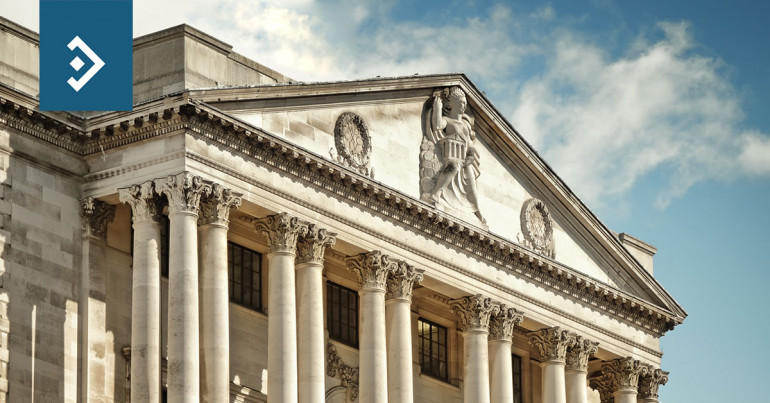
Pills admission leaves BoE stranded
Morning mid-market rates – The majors
21st June: Highlights
- Rail strikes. The shape of things to come
- House prices, first sign of an economy reacting to rates
- Real wages will take some time to return to positive territory
GBP – Central bank facing tough decision after inflation mistake
It was natural to assume that a spike in inflation would happen as demand hugely outstripped supply, but it was expected that this would level out as supply chains became untangled.
Catherine Mann, one of the independent members of the Monetary Policy Committee, spoke yesterday of her fear that inflation is becoming embedded in the economy as rising inflation is causing wage claims to increase, which in turn creates further price increases as real incomes deteriorate.
Mann is particularly concerned about the effect on Sterling should the Bank fail to keep pace with the rate increases that are taking place in other G7 economies. Were the currency to come under pressure, that would add another factor to rising inflation.
In order to avoid a rise in what she terms, domestic inflation, Mann favours a fifty basis-point increase in short term interest rates at the next MPC meeting.
There is already widespread criticism of the Bank in several quarters over its timidity in embarking on a series of twenty-five basis-point increases, which show a lack of certainty about its policy.
Mann agreed that the line in the guidance being given by the Governor was wearing thin, and it was important that the announcement following last week’s meeting that the committee showed the market that it had performed a recalibration of the risks, which remain fairly balanced between growth and inflation.
The likelihood of a recession in the UK this year remains high, and the Bank appears to have almost accepted this as fact. However, with inflation likely to hit 11% before it begins to fade, being sufficiently nimble to reverse the policy of rate increases in order to stimulate the economy will be vitally important.
It is becoming clear that the next rate hike will be fifty basis -points, but it is important that the tightening of policy is based more than simply trying to support Sterling by keeping pace with the country’s competitors.
Yesterday, Sterling, had a quiet day gaining just eleven pips on the day and, closing at 1.2252. Earlier it had tried to rally, but only managed to reach 1.2280 before falling back on profit taking.
The Bank of England appears to be determined to get the message out there, as Silvana Tenreyro and Hugh Pill are both speaking today.
Recommend our services and earn up to £75 per successful referral
USD – Soft landing rhetoric to continue in testimony
Powell is likely to concentrate on his belief that the economy can still achieve a soft landing following the current bout of rising inflation.
The policy of the Central bank to step up the level of interest rate hikes is designed to bring price increases down to a more acceptable level, but it needs to do this without slamming on the brakes on the economy too fiercely and pushing it over a cliff.
One of the more vociferous but optimistic members of the FOMC is James Bullard the President of the St. Louis Fed. He spoke yesterday of his belief that the message is getting through that the Fed is concerned about inflation but also has the tools ready to provide stimulation should the medicine prove to be too strong.
He feels that his FOMC colleagues as well as the Fed’s President are showing a determination to follow through on the advance guidance they are providing and that that advance guidance is current and relevant.
Later this week, data for new home sales will be released. This is expected to show a slowdown, which is not unexpected in an economy where interest rates are rising fairly rapidly and having a significant effect on household budgets. This is a fact that is not lost on the Central bank and will be a focus going forward.
The price of oil is beginning to stabilize, with many traders believing that it has now seen the top of the recent extreme rally. If that is the case then the same may be true of inflation and the Fed, following another fifty-point hike next month, may be able to either ease back to twenty-five-point hikes or take a break in order to take a view of the economy’s performance.
The dollar index has seen a further correction, but now seems to be building a head of steam to test and conclusively break the current resistance levels on its way to a target of 110.
Yesterday, in a quiet trading day, the index fell marginally, reaching a low of 104.23, but rallied late in the day to close at 104.49.
EUR – Russian ports blockade is raising food prices globally
The efforts being made to boost the Ukrainian application to become a member of the Union are driven, particularly on Brussels’ side, by a desire to secure the export of staple grain and vegetable oil supplies once hostilities come to an end.
Despite a considerable amount of discussion still taking place publicly regarding the size of the rate increase that has been agreed will be made following the next ECB meeting, it seems that ECB President Christine Lagarde is determined to stamp her authority on proceedings.
Yesterday, she said without equivocation that the hike will be twenty-five basis points.
Testifying before the European Parliament’s Committee on Economic Affairs, Lagarde agreed that output is being buffeted by high energy prices, while supply disruptions and uncertainty over Ukraine continue to play a part in a slowdown in activity.
Commenting on the crisis that has for now been averted, in the European Government bond markets, Lagarde vowed to do all she can to avoid fragmentation of the market. This is the expected outcome of the measures that were agreed at last week’s emergency meeting.
Martins Kazaks, the Governor of the Bank of Latvia, in a separate speech agreed that the spreads being charged to indebted nations by the market are not targeted, and the market must be able to make its own mind up about risk, while the Central Bank should provide conditions that do not punish those who are struggling economically.
The German Chancellor, Olaf Scholz, commented that he believes that high energy prices may persist for some time. He believes that Vladimir Putin’s war in Ukraine is a proxy for his efforts to create weakness in NATO’s response, and he is worried about the spread of democracy in his country. Scholz described the blockade of ports as an act of war, while the claim that the slowing of the flow of gas being due to a lack of spare parts is nothing but fiction.
The euro also had a quiet day as the market devoured the effect of last week’s rate hikes and speculated about the size of next month’s hike in the Eurozone.
It rallied to touch resistance at 1.0545, but fell back to close at 1.0513, twelve points higher on the day.

About Alan Hill
Alan has been involved in the FX market for more than 25 years and brings a wealth of experience to his content. His knowledge has been gained while trading through some of the most volatile periods of recent history. His commentary relies on an understanding of past events and how they will affect future market performance.”



